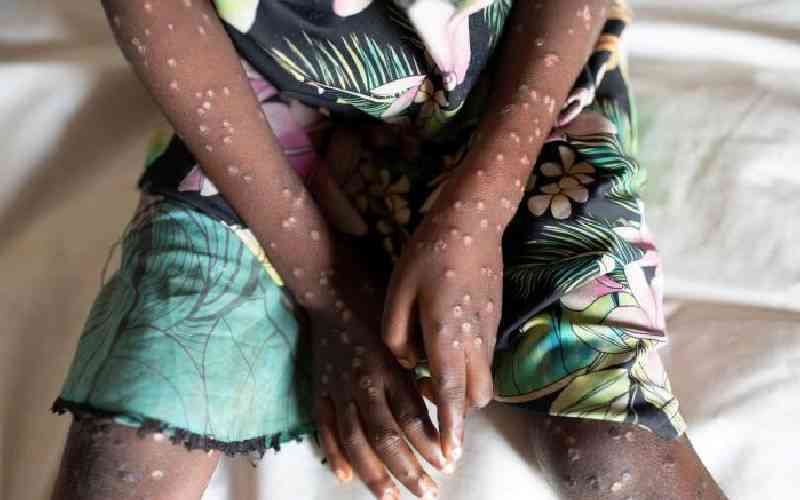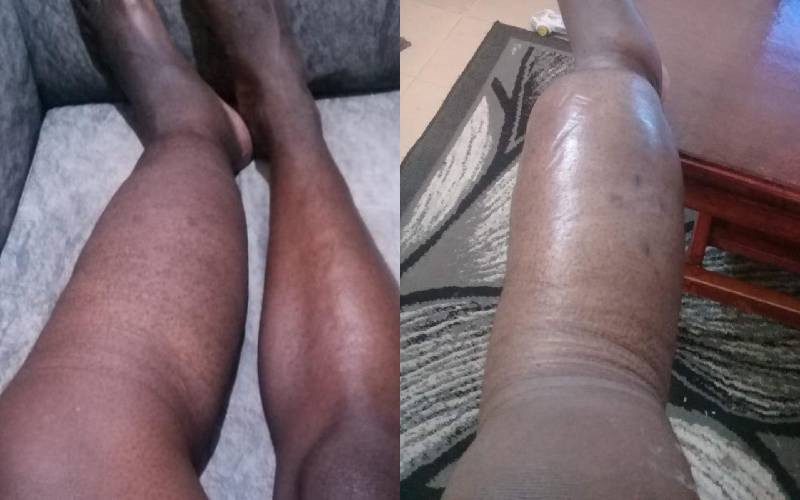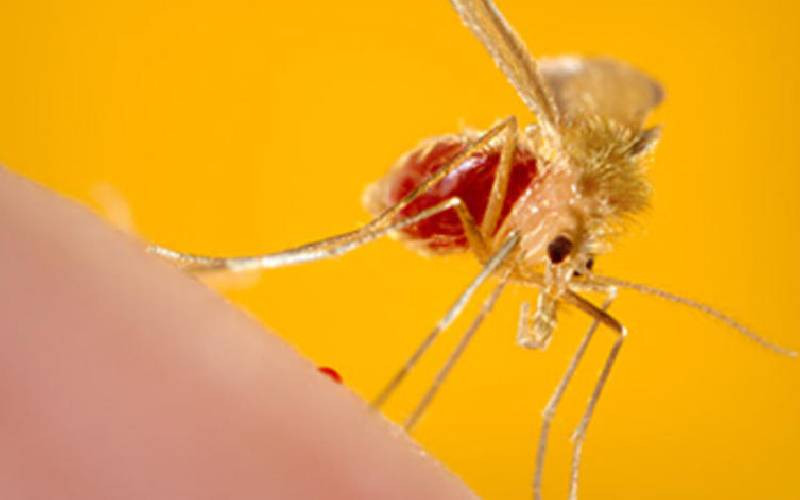
A man wakes every morning and has the engine of his car, tires, and side mirrors fixed. He also ensures that the car is insured.
Ironically, the keenness is not replicated in his personal health, only to have him seek care when severely ill, and at a chronic stage.
"Why should I go for a check-up, yet I ain't sick? What will I be doing to do in the hospital?" poses Moses Githinji.
Instead, Githinji opts to self-medicate when sick.
"I do not remember when I last visited the hospital. I see people visit the hospital for check-ups and I wonder what they want.
Visiting the hospital for check-ups is not my thing, not unless I foresee being sick, or I want to get sick. A hospital is meant for the sick," he observes.
Surprisingly, says more often, he learns his HIV status whenever his wife is tested, during pregnancy, and takes his children to clinics.
"I know I am HIV negative because all my three children are HIV negative. My wife is also negative," narrates Githinji amid laughter.
Just like Githinji, a larger percentage of men have poor health-seeking behaviour according to studies, and reports by health experts.
Health experts note, unlike women who frequent regular medical check-ups, the practice is rare among men, who only get closer to health review and treatment when critically ill.
Sadly, due to poor health-seeking behaviour, a number of men die silently, more so those in rural areas.
"Men suffer from 'wait and see syndrome, only to seek medication if the disease they suffer from is chronic. This is worrying because at long last, the majority die without care," says Prof Koigi Kamau, an Obstetrics and Gynaecologist, and a lecturer at the University of Nairobi.
Beatrice Jahenda, a resident of Lunyerere village in Vihiga County, vividly remembers June 21, 2011, when she received a distress call of her father had been taken ill.
Jahenda rushed home to take her father to the hospital, only to find him breathing his last.
Her father is reported to have complained of breathing difficulties and fever only two hours before his death.
The death shocked Jahenda because her father had never complained of any ailment, nor shown any symptoms of being sick.
"My father's death pains me up to date because had I known he was unwell, I would have taken him to hospital for care," says Jahenda.
As families and society celebrate men's health week, and Father's Day, health experts urge that society should support men by ensuring they live a healthy long life by having them seek medical attention regularly for early detection and treatment of diseases.
Dr Waihenya Githiaka, a urologist and a lecturer at the University of Nairobi, observes that men have poor health-seeking behaviours triggered by attitudes, low social-economic factors, and cultural beliefs.
He explains that society seems to 'harden' men, which makes them not share the problems they go through.
Men also tend to be busy, with no time to seek health attention.
"Men do not want to expose themselves because of their ego. Also, men are expected to pay bills, which are more important than having them allocate money for their medical check-ups," says the urologist.
"Pain or swellings is what triggers men to seek medical attention. Swellings are usually invisible illnesses that are concealed. But so long as they are hidden and nobody is seeing them, a man will not seek healthcare attention," says Waihenya.
According to Prof Kamau, in general, Kenyans are not good at taking care of their health matters.
But compared to women, men take that step when it is already too late.
"Poor health-seeking behaviour in men is because of social stigma, with a section being reluctant to be treated by women," observes Kamau.
Despite laxity in seeking care, Waihenya says that men suffer various urological problems that require immediate attention. Among urological health diseases and conditions include difficulty in passing urine, enlargement of the prostate, and prostate cancer.
The problem of passing urine has many causes including prostate enlargement, prostate cancer, an overactive bladder that comes with age resulting in obstruction of the urethra, and dysfunctional voiding.
Other causes include scars( urethral stricture) a condition which blocks the urethra. Scars are caused by injury (accidents) and urinary tract infections.
Patients with diabetes are also likely to have a problem with the passing of urine, as the disease interferes with nerves in the bladder.
"Men with problems of passing urine wake up more times at night, retaining urine, and strain when passing urine. Such individuals suffer stigma which restricts them from visiting relatives because they do not want to be laughed at," says the urologist.
Prostate cancer is also a concern in men, a condition that requires regular medical check-ups, according to Waihenya. At least 15 per cent of all cancers in Kenya are prostate, according to the cancer registry, with at least 80 per cent being late diagnoses.
Risk factors for prostate cancer include diet, more so consumption of red meat and fat that trigger prostate cancer in men. Age, family history, and environmental factors are also contributory.
But despite prostate cancer being a disease of concern, 80 per cent of patients seeking care are at an advanced stage in Kenya, according to the specialist. Contrary, according to health reports in Western countries, at least 70 per cent of men seek treatment for prostate cancer at earlier stages.
Erectile dysfunction is also a major health issue men suffer, mostly those from the age of 40 years, according to Waihenya.
Ironically, occasionally, it is women who take men to clinics whenever they suffer from erectile dysfunction.
Additionally, Kamau notes that in reproductive health, women tend to be immune to stigma because they want end results.
Contrary, the specialist says that instead of men going for check-ups, they blame women for infertility.
Common reproductive diseases common in men include sexually transmitted infections which result in infertility. The majority of those who acquire sexually transmitted diseases seek self-medication.
Prof Kamau says that the current trend shows men are becoming more infertile progressively, an observation that is probably universal.
"Sperm counts are going down, generally in the populations, this has been observed when data on sperm count is revealed, there is such a trend, and the question is, is the man getting more and more infertile?" posed Prof Kamau, who runs Nairobi Fertility Clinic.
Though the cause of low sperm count is not clearly known, Kamau attributed it to changes in lifestyle that may include dietary occupation and behaviour. A number of men at risk of low sperm count are those working in hot environments like long-distance truck drivers who sit for long hours as vehicles tend to be hot.
Motorcycle riders are also likely to suffer low sperm count because they sit on their testicles that are also heated by the motorcycles.
"Sperms are delicate. If you cook them a little bit, they die," said the specialist.
Other contributors to low sperm count according to the fertility specialist include a high intake of fats like cholesterol affecting blood supply, smoking, and careless sexual behaviour that results in infections.
Other urological issues men suffer from include cancer of the bladder.
Prostate enlargement develops with age and is common in men above 50 years.
Weihenya explains that most men are likely to suffer from prostate enlargement because they have testosterone, a hormone produced by the testis. Experts reiterate that it is rare for men to seek care for their reproductive health.
According to Kamau, it is advisable for all men to have a prostatic evaluation after every three years to help discover compilations that come with the prostate.
"Private parts are a no-go zone for men, especially those above 60. It is their daughters who notice they are unwell, and bring them to clinics," says Waihenya.
 The Standard Group Plc is a multi-media organization with investments in media platforms spanning newspaper print
operations, television, radio broadcasting, digital and online services. The Standard Group is recognized as a
leading multi-media house in Kenya with a key influence in matters of national and international interest.
The Standard Group Plc is a multi-media organization with investments in media platforms spanning newspaper print
operations, television, radio broadcasting, digital and online services. The Standard Group is recognized as a
leading multi-media house in Kenya with a key influence in matters of national and international interest.











